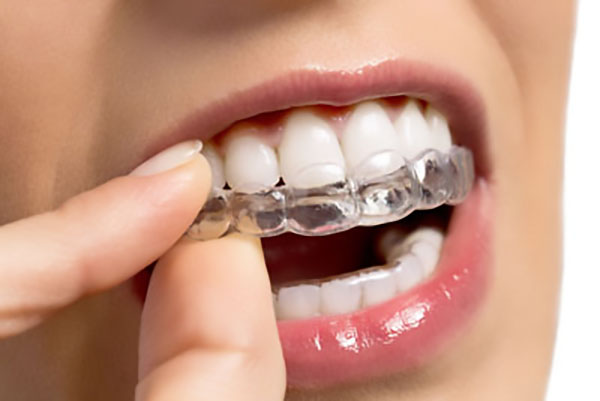Ways to Relieve Invisalign® Pain

Invisalign is a newer orthodontic treatment. It allows you to have straight teeth without having to get metal braces. Another benefit of this treatment is that it is often more comfortable than traditional braces. However, you can still expect some discomfort. Read on to learn how to alleviate this pain.
Short-lived discomfort during Invisalign
Many patients find that Invisalign treatment is not as painful as braces. However, patients can still experience some pain while receiving Invisalign treatment. As the teeth move, the patient may feel pain. Generally, pain occurs when the aligners are fitted to the patient’s teeth.
Pain may also occur when switching to new aligners every two weeks. Most of the discomfort is relatively minor and it will go away in a few days. However, others can experience pain throughout the treatment. The good news is that there are ways for patients to make the treatment more comfortable.
Pain relievers
Patients can take over-the-counter pain relievers such as acetaminophen or ibuprofen as directed. If patients experience pain when getting new aligners, then anti-inflammatory medications can help. This includes aspirin, which can reduce the inflammation and swelling that can occur in the tissues and gums. Taking a pain reliever before getting new aligners can help too.
Using coldness
Using an ice pack or cold compress against the cheek can help to soothe the gums, teeth and jaw. The coldness can also help reduce any inflammation. To avoid injury to the skin, it is good to limit cold compresses for 20 minutes at a time. It is a good idea to wrap any ice packs in cloth or towels.
Another way to relieve pain is by drinking cold water. This can help to relieve pain in the mouth. Swishing ice water in the mouth can also help to reduce inflammation, providing relief to the tissues. It is good to stick with drinking water because beverages such as tea or soda can cause tooth decay.
Ice cubes can also help reduce pain. Sucking on them will help provide some longer pain relief. One way to do this is by using ice cubes after removing the aligners for brushing. The coldness can also help to numb the area a bit.
Using new aligners before bed
Many people who have Invisalign notice pain only when using new aligners. Putting on a new aligner before bed can help patients not notice the pain as much. The mouth can adjust to this new aligner while the patient is asleep. This can lessen the pain during the day.
Visit a dentist today
Getting Invisalign can be uncomfortable at first. But by following the steps above, you can help reduce the pain. Even if they are uncomfortable at first, it is important to wear the aligners for the recommended amount of time. Your dentist can smooth any edges that are too sharp. Wearing your aligners often enough can help you facilitate the process and get good results. This will help you achieve that beautiful smile you have been dreaming of.
Request an appointment here: https://drcalldental.com or call Dr. Call Dental Center at (706) 425-6240 for an appointment in our Dalton office.
Check out what others are saying about our services on Yelp: Read our Yelp reviews.
Related Posts
Dental implants are a permanent, functional solution for patients with tooth loss in one or both dental arches. Both partial and full arch dental implants have become more accessible, customizable, and successful for a wide range of patients. However, they have different uses and candidacy requirements. Understanding the differences between these options helps clarify which…
There are more tooth replacement options available today than ever before. Still, a large number of patients still opt for traditional dentures. This option offers advantages other tooth replacements do not, and these advantages make dentures a better choice for some patients.What is meant by “traditional dentures”Traditional dentures are custom-made appliances, usually composed of porcelain…
Dentures provide an accessible opportunity for people to enjoy full arches of teeth, but caring for dentures takes extra time. While denture care does not have to be complicated, caring for your dentures does mean knowing what to do and what to avoid.Denture care can be broken down into two categories: things that should be…
Tooth replacement restores bite function, smile appearance, and patient confidence. However, there is more than one option to choose from. Exploring the different options — dental implants, bridges, and prosthetics — can help you determine which would benefit you the most.Decay, trauma, or periodontal disease, among others, can lead to tooth loss. Regardless of the…


